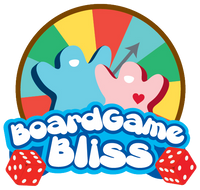The Great Dalmuti
Products title that includes 'PRE-ORDER' is subject to our Pre-order Policy
Couldn't load pickup availability
Delivery and Shipping
Delivery and Shipping
For more details, please refer to our Shipping and Order Information.
Pre-Order Policy
- Pre-order items are charged at the time the order is placed.
- Prices for pre-order items are subject to change based on final landed costs.
- If the final price is lower, the difference will be refunded to the customer in the form of store credit.
- If the final price is higher, customers will be given the option to either:
- Pay the difference, or
- Cancel the item for a full refund.
- Orders containing pre-order items will be placed on hold until all items in the order are available.
- Once all items have arrived and pricing remains unchanged, the order will be automatically shipped.
- Pre-orders are fulfilled on a first-come, first-served basis.
- If a pre-ordered item becomes unavailable (e.g., the publisher cancels the product), a full refund will be issued.
- Pre-orders may be cancelled and refunded by customers or the store.
- For transactions that are no longer eligible for direct refunds due to payment processor limitations, a store credit will be issued instead.
Description
Description
| Designer | Richard Garfield |
| Publisher | Wizards of the Coast |
| Players | 4-8 |
| Playtime | 60 mins |
| Suggested Age | 8 and up |
A light card game where players gain status by going out first.
The 80-card commercial deck contains cards ranked from 12 to 1, along with two Jesters. Each card bears a number, which is not only its rank, but also tells you how many of that card exist in the deck. In other words, there are twelve 12s, eleven 11s, four 4s and a single card ranked 1. The lower the number, the better the rank.
The deck is dealt out to all players and the object is to get rid of your cards as fast as possible. The hand begins with one person playing one or more card to the center of the table. The cards played must all be of the same rank (although Jesters are wild, and may be played with any other cards). Each player in turn must now either play the same number of cards of a better rank, or pass. Play continues around the table until everyone has passed; at that point, the cards are cleared and whoever played the last set of cards leads the next round. After everyone has gone out, the players are ranked. For example, the person who first got rid of all his cards becomes The Great Dalmuti. Players change seat position to represent the new hierarchy and begin another round. The Great Dalmuti is generally played for many rounds.X
